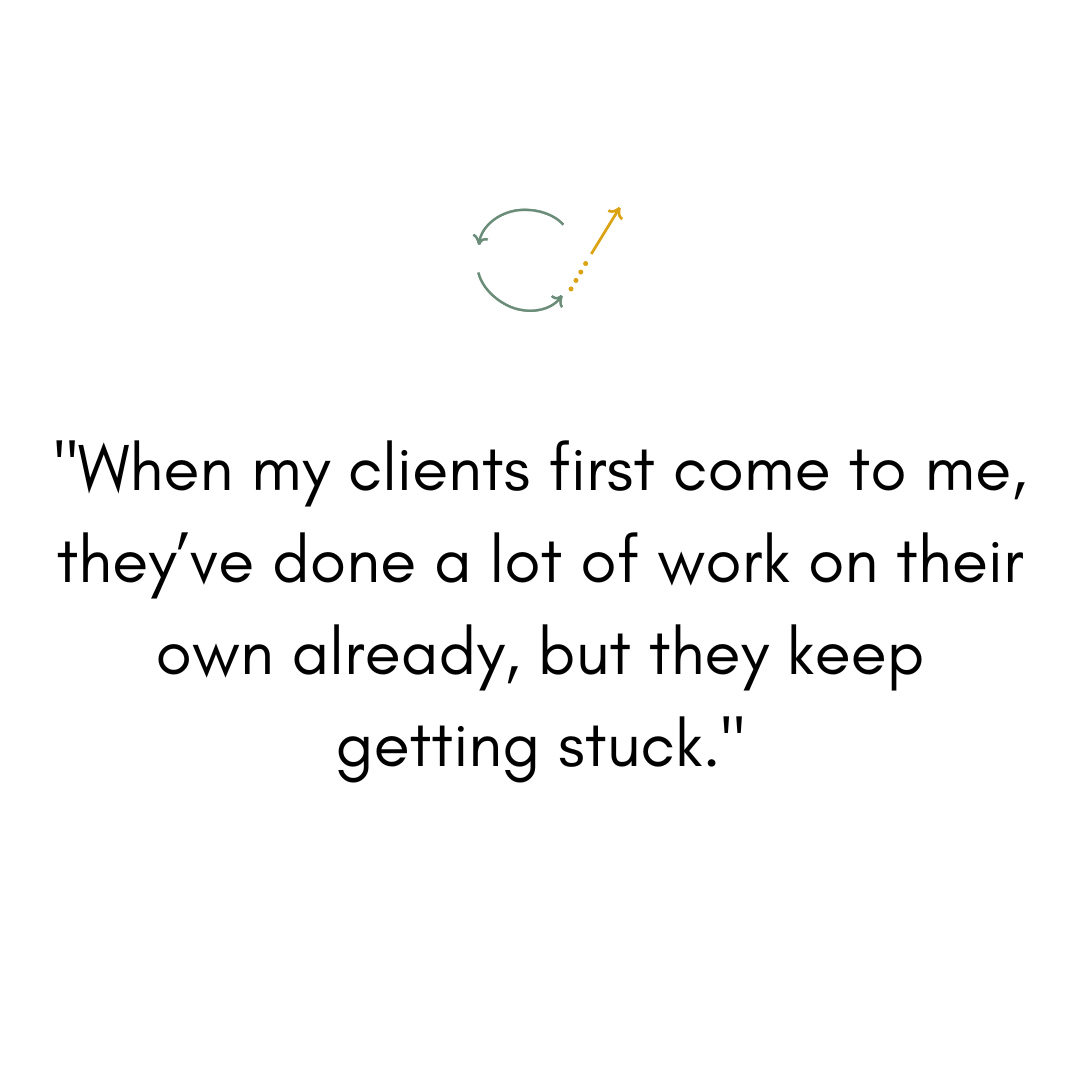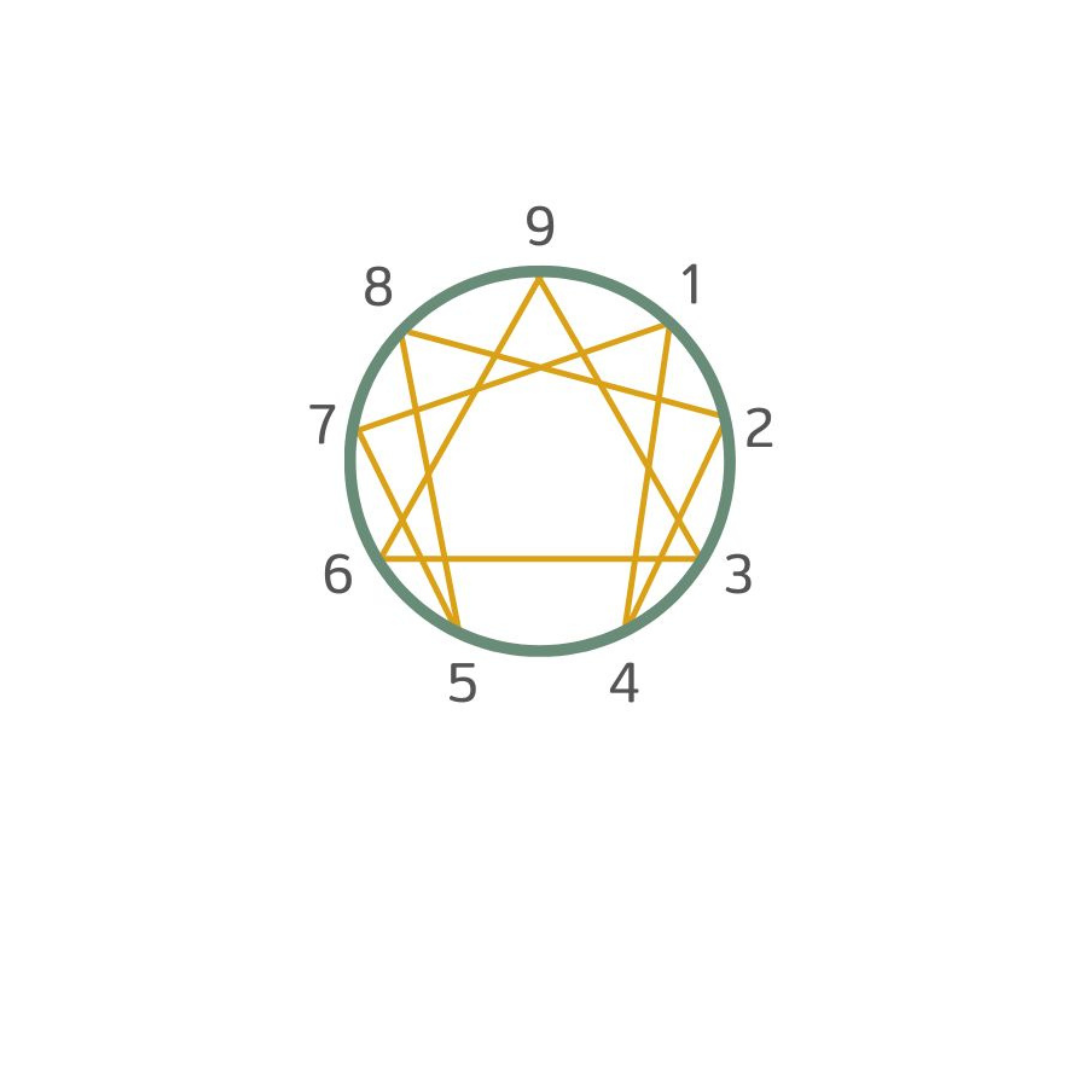
Enneagram Type 2
Core Emotion: Shame (Externalizing)
Filter: Sees where there is a need to help
Energetics: Penetrating eyes, cute, seductive
Traits: Compassionate, bubbly, friendly, giving, self-sacrificing, prideful
Values: Being needed, being kind, relationships, generosity
Childhood: Learned early on that it wasn’t okay to have needs, that they could be worthy only if they were of service to others and needed
Not afraid to: Offer help, give you the shirt off their back, cheerlead and support others
Hard for them to: Take care of themselves and recognize their own needs, say no to helping others, draw boundaries, tolerate someone being mad or upset with them, not be liked

Enneagram Type 1
Core Emotion: Anger (Internalizing)
Filter: Sees everything that isn’t right
Energetics: Upright, straight
Traits: Discerning, serious, orderly, high expectations for self and others, rule following (society’s OR their own)
Values: Integrity, fairness, quality and doing things the correct / best way
Childhood: Learned early on that it wasn’t okay to make mistakes and internalized that they are a mistake and must judge themselves harshly to fix it
Not afraid to: Do conflict if it serves a greater purpose, stand-up for what they believe is right, be discerning, see things in black and white ways
Hard for them to: Make mistakes, be flexible, adapt to unexpected change, see things in the gray, let loose and play

Enneagram Type 8
Core Emotion: Anger (Externalizing)
Filter: Sees that something terrible has happened and they must fix it
Energetics: Big, powerful, strong
Traits: Gregarious, big personality, ‘in your face’, motivator, protector, leader, comfortable / likes being in the spotlight, intense, work hard / play hard, lust for vices
Values: Directness, meeting goals, honesty, loyalty
Childhood: Learned early on that weakness is vulnerability and they must protect themselves and others. Often took care of or protected a parent, sibling, friend or pet.
Not afraid to: Tell you like it is, take action, be in conflict, take control
Hard for them to: Be vulnerable, let go of control, not feel responsible for protecting others they feel are weak, stop working (can be workaholics)

Working with an Enneagram Therapist: How Type 9s Can Benefit from Therapy
Discover how Enneagram therapy for Type 9s in North Carolina can support trauma healing, self-awareness, and personal growth. As a licensed therapist specializing in Enneagram trauma therapy, I help Type 9s heal from past trauma, navigate conflict, redefine their relationship with anger, and embrace their authentic selves. Whether you're in Asheville, Raleigh, Charlotte, or beyond, this therapy offers an empowering approach to emotional resilience, healthier relationships, and lasting healing.

Trans Rights Are Human Rights
I have worked with many trans and queer youth and adults as a school counselor and as a clinical mental health counselor. LGBTQA+ youth are at higher risk for depression, anxiety, and suicide. When my clients / students receive support and respect for their gender identity, things start to shift in a positive direction for them. Sometimes this includes accessing medical treatment such as hormone therapy, sometimes it doesn’t. I have personally witnessed youth go from experiencing major depression and suicidality to thriving because of gender affirming care.

What is C-PTSD?
C-PTSD is a form of PTSD that results from a person (especially a child) experiencing inescapable trauma over an extended period of time. This trauma is often inflicted by family members or communities that either abuse them directly or do not protect them from abuse. The abuse is ongoing and creates an environment that is lacking in safety. What can cause C-PTSD?
Witnessing domestic violence
Sexual Abuse
Neglect
Emotional Abuse
Physical Abuse
Religious Trauma
Racism






Your Enneagram Type is How You Cope with Trauma
Discover how your Enneagram type responds to trauma and the unique coping strategies shaped by childhood experiences. This comprehensive guide explores trauma responses for each Enneagram type and offers insight into healing through trauma-informed therapy. Learn how identifying these patterns can help you break unhealthy cycles, connect with your authentic self, and build resilience. Whether you're seeking support for anxiety, emotional healing, or looking to understand your type's defense mechanisms, this article provides practical insights for those ready to begin their trauma recovery journey.

What is a Cycle Breaker?
We tend to repeat a lot of the same patterns and cycles that were modeled for us as children because it’s what we know and it's how we learned to survive life. Cycle Breakers are different.

Cycle Breaking and How the Enneagram Can Help
The Enneagram acts as a mirror and a guide to help you understand how you get in your own way. While it can be painful to see, this clarity is liberating because it means that you can do something about it.